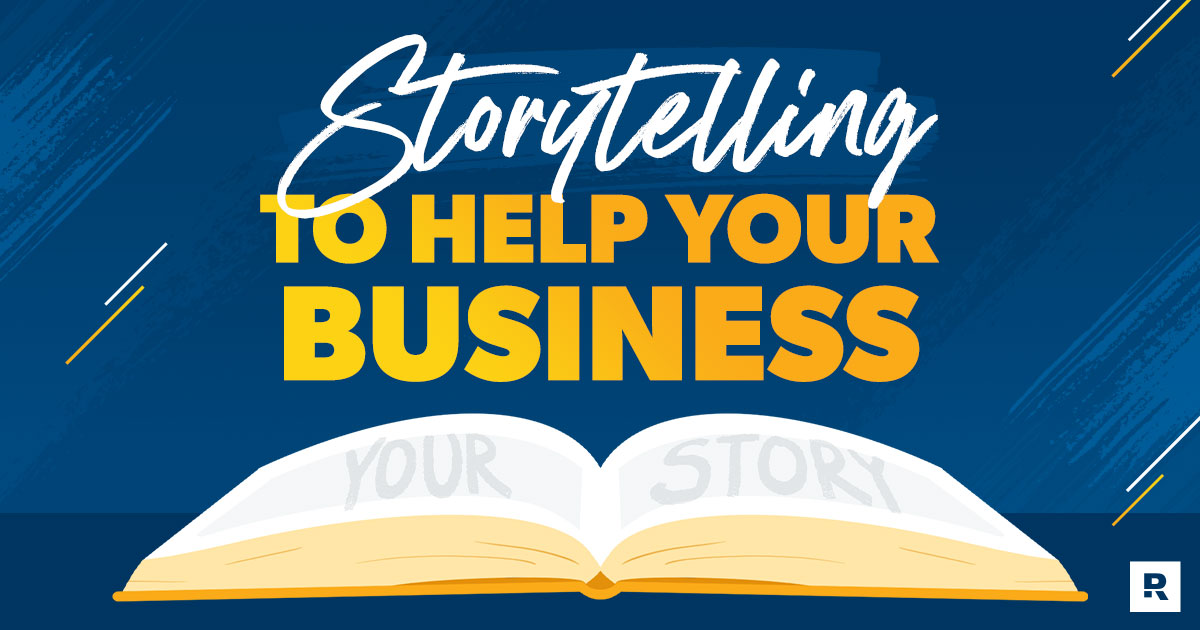Why Your Story Will Make a Difference in Your Business
3 Min Read | Dec 29, 2021

Whoever declared “There’s no ‘I’ in team!” was wrong.
Sure, it’s a bad idea to stake your entire company on one ego. But revealing the personal side of your business can make for powerful marketing. Biographies are often best-sellers—especially when they include relatable stories from the lives of business leaders, celebrities or historical figures.
And the appeal of a personal story holds true both in recruiting customers and engaging employees.
So how should you incorporate your own journey into your company’s branding?
Your “About Me” Is Really About the Customer
The “About Me” section of your marketing is not the place to describe your childhood, marital status or number of pets. You’re not filling out a dating site questionnaire—you’re trying to win customers! So frame your story from a customer’s perspective.
What in particular about your life history would appeal to potential clients for your business? There are several good approaches:
- Share what inspired your company. For example, “Years of watching her grandmother bake led Jennifer to dream of opening a restaurant chain.” This kind of history will resonate with a wide range of readers and get them interested in what happened next.
- Emphasize your experience and results. Your readers will tend to put themselves in your shoes as you unfold your story. So this is the place to brag a bit—just be sure to keep the focus on your clients. Don’t say “Mark was voted Most Likely to Succeed and went on to become Salesman of the Year nine times in a row.” Instead, say “For many years now, Mark has helped hundreds of clients like you to find greater success in their own businesses.”
- It’s okay to include some of the pain points. Nobody’s life is perfect, and your clients know that. By touching lightly on a few of the obstacles you faced in business or life, you make your story even more relatable for them. Just be sure to lay heavier emphasis on dreams and success than on times of trouble.
Tell Us About the Good Ol’ Days
Your story can make a big internal impact too.
Who doesn’t enjoy hearing Grandpa talk about how he met Grandma? Or Uncle Joe’s stories about mom’s childhood misadventures? Old family stories remind us where we came from and help us appreciate how far we’ve come.
And there’s something stirring about the backstory of any successful organization. You can use your own company’s story to engage your team members too.
If your employees know the why behind the company mission and the history of how leadership made key decisions in the past, they will get fired up and feel involved in a crusade.
There are plenty of ways to communicate your story to your team.
- Invite company leaders to describe company values and how they emerged during staff meetings.
- Hold an Ask the Board Q&A session to encourage meaningful dialogue about company history and ongoing plans.
- Share, share and overshare if necessary. Plan for frequent and detailed updates about wins and losses as your company grows. It’s better to tell your team too much about the ups and downs of your business than to wind up with employees who feel left out of the process. The vulnerability required to tell the truth about what’s happening in your organization will gain their trust.
The more you share your story with your employees, the more you’ll see them investing into the organization. The same holds true for prospective customers, who will be drawn into the energy of a company with a compelling story.
Did you find this article helpful? Share it!

We Hear You!
We’re considering adding the ability to save articles to your Ramsey account.


